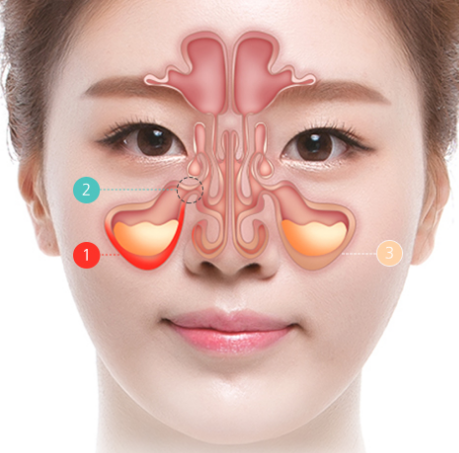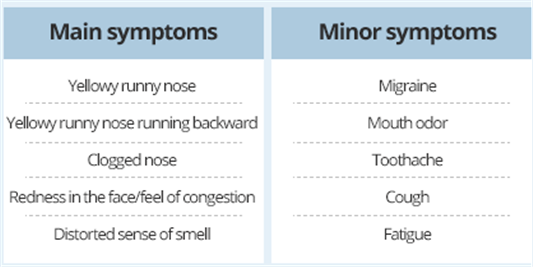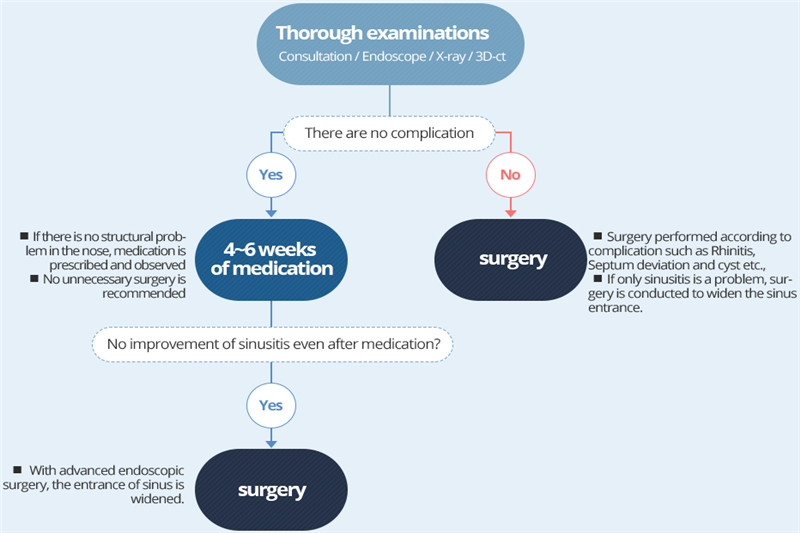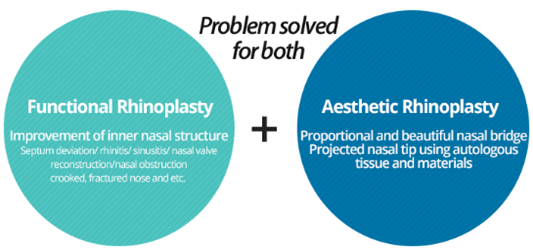GNG HOSPITAL
GNG Web Blog
Whats going on with my blocked nose? Sinusitis Edition2024-09-09 |
|
If you have been suffering from rhinitis, the season you need to pay attention is right here.
When I visited the hospital thinking that I had rhinitis, it was actually a sinusitis
so I’ve prepared this information for those who may not know what it is!
What is Sinusitis?
Chronic sinusitis is defined as sinus inflammation that persists for more than 12 weeks, which is commonly referred to as sinusitis.
The sinuses are empty spaces within the facial bones surrounding the nose, connected to the nasal cavity through small openings.
Therefore, when inflammation occurs, it can spread out to other areas, such as otitis media and conjunctivitis. This requires proper treatment. Main Causes of Sinusitis
1. Viral infections 2. Bacterial infections
Sinusitis often occurs after a cold when mucus gathers in the sinuses.
Process of Sinusitis Development
1. Thickening of the Sinus Mucosa
The walls of the sinuses have tiny hairs and mucous membranes that help remove bacteria as mucus passes and allow air ventilation and drainage of secretions. When you have rhinitis, allergies, or a cold, the membranes swell and thicken. ↓ 2. Natural Opening Closure The swelling of the mucosa leads to a blockage of the natural openings. ↓ 3. Accumulation of Pus Inside the Sinuses
Due to the blocked opening, fresh air cannot enter, causing the secretions in the sinuses to accumulate and resulting in inflammation. This condition is referred to as sinusitis.
Self-Diagnosis for Sinusitis
Two or more main symptoms, or one main symptom and two or more additional symptoms, must be significantly present.
Advantages of GNG Sinusitis Treatment Point 1 Systematic Medical Care
We determine treatment methods based on rigorous examination systems to identify the cause and diagnosis.
Sometimes, when diagnosed with sinusitis at an ENT clinic, patients might be advised to have surgery immediately without sufficient duration of medication treatment if there are no structural problems.
Considering that sinusitis can often be treated with medication unless there are structural issues,
it is critical to prioritize medication treatment to monitor progress and cautiously decide on the necessity of surgery.
Point 2 Simultaneous Surgery for Nasal Disorders and Cosmetic Nose Surgery!
While addressing sinusitis, we can also provide cosmetic nose surgery at the same time.
At GNG, we solve the frustrating blockages in the nose and simultaneously create an aesthetically pleasing nose shape, ensuring satisfactory surgical results.
Sinusitis Q&A Q: What is the difference between medication and surgery?
A: First, sinusitis is categorized into acute sinusitis and chronic sinusitis.
Acute sinusitis occurs when a virus or bacteria enters the sinuses, and symptoms usually improve relatively quickly with medication.
However, chronic sinusitis requires a longer duration of medication treatment, and in cases where the medication is ineffective or if there are accompanying nasal polyps, surgery may be necessary. Q: Wouldn’t all the mucus in the sinuses be expelled if I blow my nose thoroughly, thereby curing the sinusitis?
A: Forcefully blowing your nose can actually cause mucus to flow backward into the sinuses,
which can lead to inflammation and exacerbate sinusitis symptoms. If sinusitis is not present, this action may increase the likelihood of its occurrence. |







